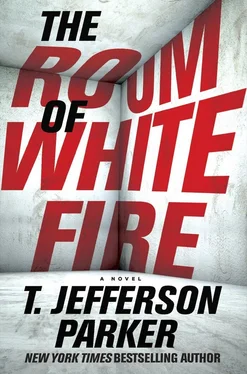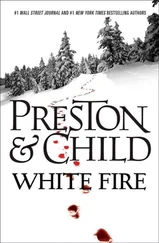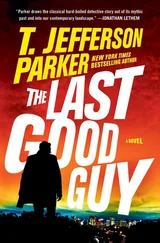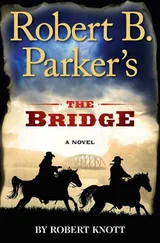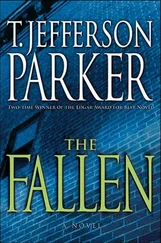Spencer was described as “athletically gifted and outgoing,” “a fair student,” “a team player.” He was Air Force ROTC. After college baseball he married high school sweetheart and cheerleader Dawn Foxx, got a masters in psychology, then a PhD. A Military Times article noted that psychology was not an approved ROTC major, but for Briggs Spencer — and others — exceptions had been made. At age twenty-six he graduated from Officer Training School and was quickly assigned to the SERE program at Fairchild AFB.
I scanned through Spencer’s time at Fairchild. He left the USAF in 1995 but was rehired as a civilian consultant to continue teaching SERE. His salary was classified, but an anonymous source put it at triple his Air Force pay. In 2002, not long after 9/11, he and another SERE senior trainer, Timothy Tritt, incorporated under the name Spencer-Tritt Consulting and, in 2003, shortly after the invasion of Iraq, moved their offices to Washington, D.C. A badly focused picture showed an older version of the hard-hitting first baseman.
Besides his fleeting notoriety from the Senate Intelligence Committee Report on Torture, there was little hard biography on Spencer to be found. But I found plenty of up-to-the-minute buzz: Spencer’s “tell-all” war memoir, Hard Truth, was due out later this month. Can life lessons learned in a secret prison change your life for the better? Schedules of his media appearances and book tour were posted. He had dates on CNN, MSNBC, and Fox News, and had a 60 Minutes feature in the can. His book tour was twelve cities, coast-to-coast, starting in his hometown of La Jolla. Much was made of Briggs and Mrs. Spencer flying from city to city in one of his “several” helicopters. There were lots of pictures of him — Spencer in a ruggedly handsome headshot, Spencer loping from one helo or another, Spencer on the tarmac in front of Air Force One with Bush and Rumsfeld, all three of them red-eared in overcoats against some biting winter wind. A major studio had purchased movie rights to Hard Truth , Russell Crowe attached.
Next I searched to see if the paths of Clay Hickman, SERE program graduate, and Briggs Spencer, “master instructor,” had crossed early on. If so, I couldn’t find that crossing. Not at Fairchild, from which Briggs Spencer departed long before the arrival of Clay Hickman, at the ripe old age of nineteen. Not in Iraq, where, according to Chuck Graff’s DoD source, Clay had not set foot. While Doctor of Psychology Briggs Spencer was commuting from black site to Langley and back again, Clay Hickman was officially nowhere from late 2007 until his discharge at the end of 2009. Then came Clay’s troubled years, as documented in Paige Hulet’s file. Until 2014, that is, when he was committed to Arcadia, a for-profit hospital recently founded by Briggs Spencer. In a low-percentage play, I replaced “Clay Hickman” with “Rick Sims,” then “Richard Sims,” but nothing popped.
I stood up from the rustic old table that was my work desk, went to one of the tall windows and looked out at the dark hills to the west. Rain was falling. I remembered flying through a rainstorm with Justine one night, coming home from Palm Springs. We’d ignored the forecast in our usual manner, and sure enough, by the time we began our descent into Fallbrook Airpark the rain was heavy and the thunder booming and the lightning splintered yellow in the west. She landed Hall Pass beautifully and the rain poured off the plane’s wings as we taxied toward the hangars. We got the Cessna into her place and secure, then ran through the rain to the car. It was late and dark and we were alone in the parking lot so we made love in the back while the storm bore down. We had music on. I can remember the songs but not the order in which they played. I used to know. Every small loss takes you further away from what you loved. But how else do you go forward without forgetting some? You can’t carry all of it.
Now in my darkened study I watched the rain. A scientist on the radio said there’s always the same amount of water on and in the earth, it just changes places. I wonder what good this knowledge does. Tell that to someone in a flood. Or in a drought. Soon water was tapping on the old oak floor. I got a red plastic bucket from under the bathroom sink and toed it into place. The drops kept a beat, slower and louder than the raindrops hitting the roof. Quietly, from under those wonderful syncopated rhythms of water, came Justine’s voice, just its sound, no words.
My phone buzzed in my pocket. The text said:
12:38 AM
All good. Sleeping. Must leave soon. He will talk to u. Use this number, Walmart cheapie no GPS. He’s afraid of ping
12:39 AM
Where are u now?
12:40 AM
No. Trust us.
12:41 AM
Where are u going?
12:41 AM
TRUST US!
12:42 AM
Must see him. Any time or place.
12:43 AM
You sleep tight 2 
Fat chance. I kept picturing Clay Hickman’s paintings. And Sequoia’s neat little Airstream. And wondering about all the things that might happen when you put Clay and Sequoia together in a tight space and shook them up a little.
I sat up late with my grandparents Dick and Liz, under the big palapa out by the pond, watching the rain. The raindrops sparkled on the surface of the pond and raised a faint mist. Even light rain like this seemed like a major weather event after so many years of California drought.
Grandpa Dick sat to my left, drinking scotch and grousing about the democrats ruining his country, berating Grandma Liz for her drinking, and complaining about the slippery shower floor in his casita.
Elizabeth sat to my right, drinking wine and griping about the republicans ruining her country, belittling Dick for his drinking, and me for not fixing the electricity in her casita.
“This whole place is a disgrace,” she concluded. “You should sell.”
“I can’t leave it, Grandma.”
“But you won’t fix it.”
“You can’t leave it and you can’t fix it, but you can’t stand it, either, can you?” asked Grandpa.
“Sell, Rollie,” said Liz.
“It is California real estate!” said Grandpa. “Hang on to it.”
“And run it into the ground?” countered Grandma.
Grandpa said nothing, just shook his head, as if his wife of fifty years were daft. “So what in hell have you been up to, Rollie? Haven’t seen much of you around here the last couple of days. Staying busy?”
“The usual.”
“Exactly what usual?” he asked.
“I’m looking for someone who doesn’t want to be found.”
“That’s everyone, if they’re truthful,” said Grandma.
“Speak for yourself.”
“I knew he was going to say that. I knew it.”
I watched the rain fall on the water and saw for one brief second the little rowboat we had, Justine at the oars, swimsuit, looking back at me from beneath one of her floppy sun hats. Bright water. That was in September, our perfect year. I heard her voice on the water, then no voice, only the raindrops boiling the pond.
Trying to shake that, I trotted out into the rain and pulled my truck into the barn, which had been fitted with a hydraulic vehicle lift years ago by a car-tinkering great-great-uncle of Justine’s. Once I got it up I took a powerful shop light and examined the underside of the truck.
I found the transmitter tucked up on the foreside of the gas tank, screw-clamped to a metal strap. I wondered when they had put it on. More important, who they were. Lots of they s out there, if you let your imagination run, which I am not in the habit of doing. Good for an artist, maybe, but not a PI.
Читать дальше
